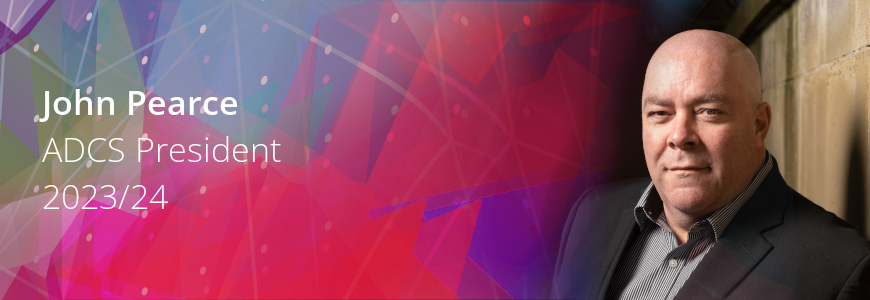ADCS response: National Panel’s phase two report

Responding to the Child Safeguarding Practice Review Panel’s phase two report on safeguarding children with disabilities and complex health needs in residential settings John Pearce, ADCS President, said:
“The National Panel’s review is a stark reminder that the systems currently in place to safeguard and support some of our most complex children and young people are not working, and of how far we need to travel to ensure that they do. Children with disabilities and complex health needs are some of our most vulnerable children often without a voice, they deserve to be safe and treated with love, humanity and dignity. We need to work collectively together to ensure that this group of children remain a priority at all times. They deserve for local authorities, health commissioners, schools, providers and the inspectorates to work together to provide individualised packages of care and support backed by joined up national policy and funding. The impact that 13 years of austerity has had on our ability to offer the kind of local solutions that allow all children to remain in provision close to home and connected to their communities, wherever possible, cannot be understated.
“Phase two of this review highlights systemic challenges that act as barriers to us meeting the needs of children with disabilities and complex health issues as well as we would like to. This includes a lack of sufficient and appropriate placements and longstanding recruitment and retention issues in the residential care workforce. Demand for placements of all types far outstrips supply and profiteering takes money out of the system when it’s needed most. We face longstanding challenges around placement quality, sufficiency and cost, effective commissioning may be part of the answer, but it is not a silver bullet, we need to look beyond commissioning practice. Our current model of care and support for children with complex SEND has shifted radically towards independent residential special school provision far removed from a child’s home and community. This does not align with the ambition and vision in the government’s own children’s social care strategy, which is to keep children in care as close to home as possible and in a family environment.
“Change where it benefits children is a positive thing but barriers to achieving the sort of change children need can include regulation and resourcing. Many of the recommendations in this report will have a significant multi agency resource requirement to implement effectively and take time to achieve and we await the government’s response to these. We welcome the recommendations to support the vital residential workforce and the ambition to move towards more community-based solutions and wrap around support in education. It is important that any further reforms link with those already progressing, such as those in Stable Homes, Built on Love and the SEND and AP implementation plan.”
ENDS
Related Articles
John Pearce comments on measures to introduce mandatory reporting in the...
In Safeguarding & Child Protection
John Pearce responds to the National Panel’s annual report.
In Safeguarding & Child Protection
John Pearce on the government’s response to the Safeguarding children with...
In Safeguarding & Child Protection
ADCS responds to a further consultation on mandatory reporting by the Home...
In Safeguarding & Child Protection
Unaccompanied asylum seeking (UAS) children have received substantial media...
In Asylum
Commenting on the latest Children in Need statistics, Helen Lincoln, Chair of...
In Safeguarding & Child Protection
Chris Munday, Chair of the Resources & Strategy Policy Committee said:
In Safeguarding & Child Protection
ADCS response to the DfE’s consultation on updates to its information...
In Safeguarding & Child Protection
ADCS has responded to the recent DfE consultation on updates to Working...
In Safeguarding & Child Protection
ADCS response to the government consultation on a new mandatory reporting duty.
In Safeguarding & Child Protection
John Pearce comments on the government response to the final report of the IICSA
In Safeguarding & Child Protection
John Pearce comments on mandatory reporting of csa
In Safeguarding & Child Protection
Steve Crocker responds to the Children’s Commissioner’s report on...
In Safeguarding & Child Protection
ADCS President Steve Crocker said: “The Association has significant concerns...


